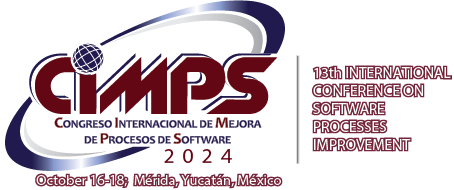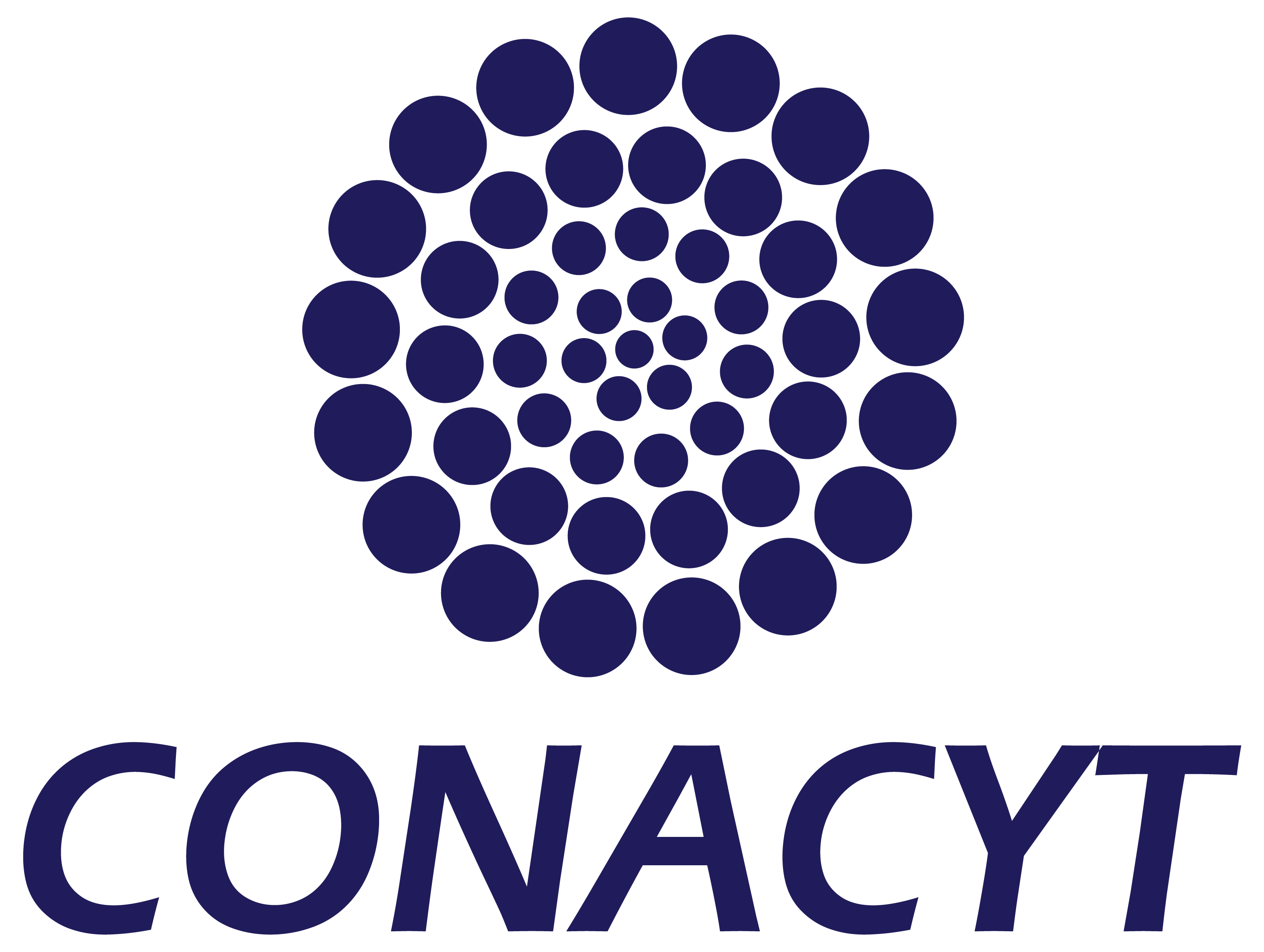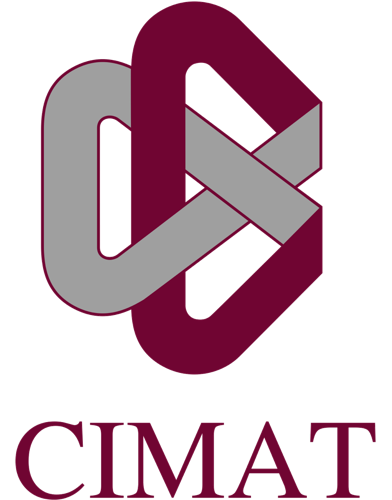October 18
WORKSHOP, October 18
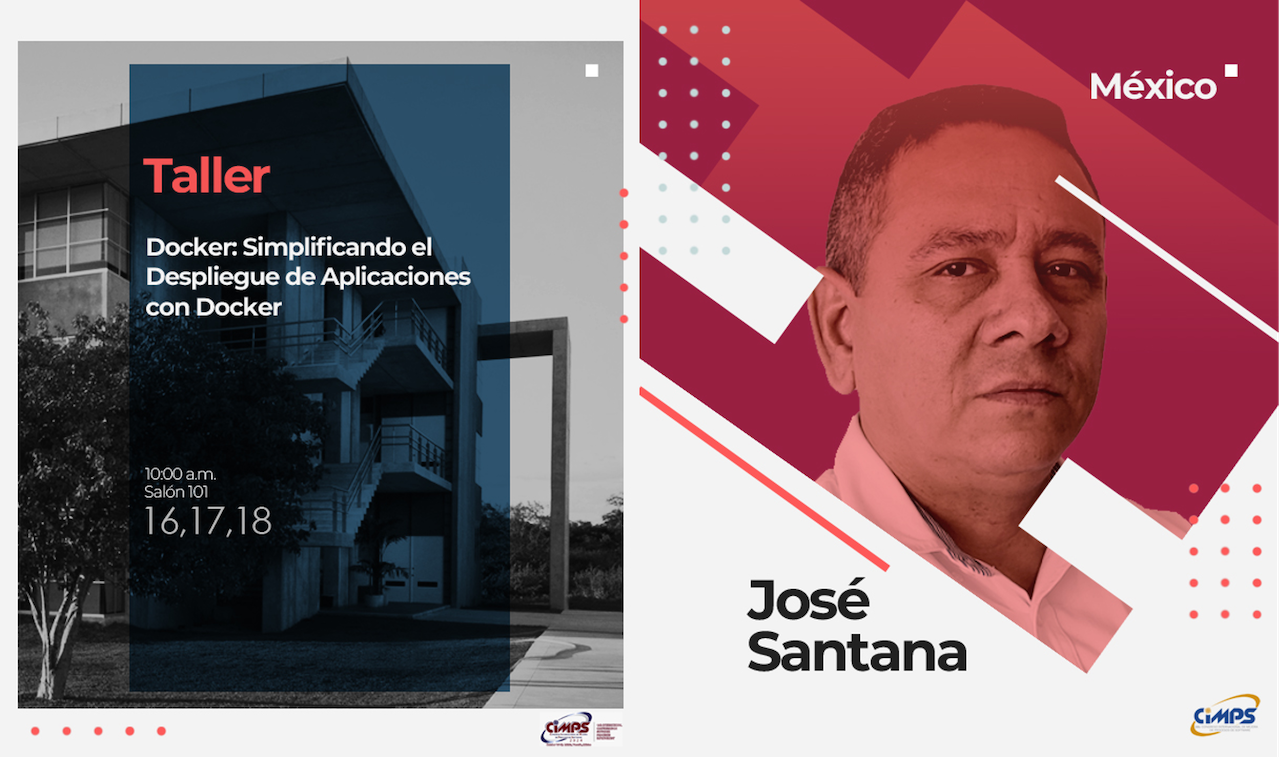
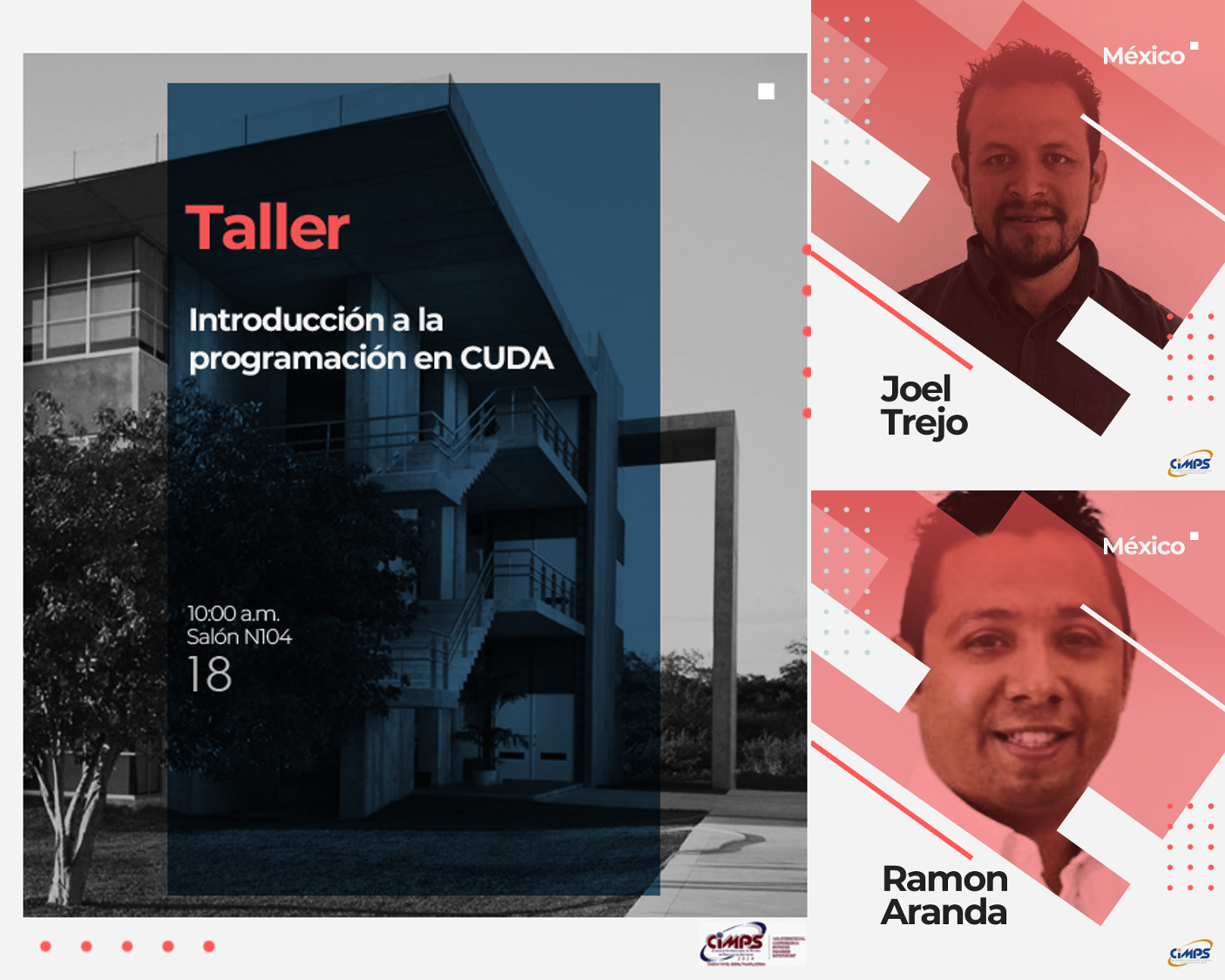




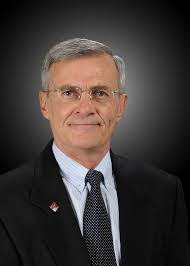
Dr. Claude Y. Laporte has been a Professor since 2000 at the École de technologie supérieure (ÉTS), a 10,000-student engineering school, where he teaches software engineering. His research interests include software process improvement in small and very small enterprises, as well as software quality assurance. He has worked in defence and transportation enterprises for over 20 years. He received a Master’s degree in Physics from the Université de Montréal, a Master’s degree in Applied Sciences from the École Polytechnique de Montréal and a Ph.D. from the Université de Bretagne Occidentale (France). He was awarded an honorary doctorate by the Universidad de San Martin de Porres (Peru) in 2013.
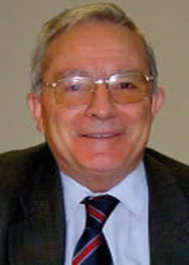
Gonzalo Cuevas was born in Spain in 1940. He received the Engineer degree in Telecommunications and the Ph.D degree in Telecommunications from the High School of Telecommunications, Polytechnical University of Madrid, Spain, in 1965 and 1974 respectively. Founder of the Software Process Improvement Investigation Group in Spain.
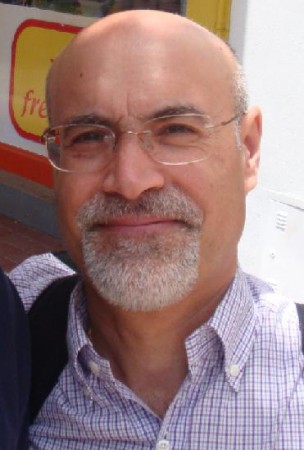
Manuel Pérez Cota is Professor and Researcher at the University of Vigo (UVIGO) in Vigo, Spain. He has a degree in Electrical Engineering (Universidad La Salle) and Electronics and Communications Engineering (Universidad Nacional Autónoma de México – UNAM, 1980), a PhD in Industrial Engineering (Universidad de Santiago de Compostela, 1990). He is the director of the international research group SI1-GEAC (http://cuautla.uvigo.es/si1-geac/). He was the first director and developer of the Computer Department (Computer Science School of the University of Vigo). He collaborates in different Master and PhD programs in Spain, Portugal, Germany, Finland, Argentina, Bolivia and México, and has been supervisor of several PhDs. He has been involved in different European and International projects. He has published quite extensively and has many publications (including books, book chapters, Scientific Citation Index journal articles, and international journal articles, as well as publications in refereed conference proceedings). He is a member of different international committees and associations (ACM, IEEE, AISTI, AIPO, ANALCT).

Stewart R. Santos Arce (S07-M’09-SM’14) received the degree of Engineer in Communications and Electronics from the Universidad Autónoma de Campeche, in 2007, the title of Master of Science and Doctor of Science, both with Specialty in Electrical Engineering, of the Center for Research and Advanced Studies of the National Polytechnic Institute (CINVESTAV) in 2009 and 2014 respectively.
He is currently a full-time research-professor in the Department of Electronics at the University Center of Exact Sciences and Engineering at the University of Guadalajara. His main research interests focus on parallel neuronal computating for real-time digital signals applied to processing, analysis, segmentation and feature extraction of remote sensing images.In IEEE, he has participated as Student Activities Committee chair (SAC), Young Professionals chair (YP), Communication Society Treasurer (COMSOC), Membership Depelopment and IEEE Guadalajara Section vice-chair. He currently serves as president of IEEE Guadalajara Section, during the period 2017-2018.

J. Ignacio Castillo has been working for 19 years in IT&C industries [Datacenter Dynamics, RedUno-TELMEX, IFE, DICINET], as well as in private and public universities as professor [UDEFA, UACM, BUAP, UPAEP, UTM]. He has participated in more than 40 national and international projects as a team member, or leader on technical and management positions. Castillo is an IEEE Senior Member. He participates with ISO/IEC 27000 committee, Mexican NB. As professor he has lectured more than 100 undergraduate and graduate courses, he wrote journal and conference papers, one book, technical reports and is referee for magazines and conferences; he organized national and international conferences and seminars. He had offered more than 60 keynote, invited talks and webinars, but also he wrote more than 100 divulgation articles for magazines and newspapers.
Since 2008 Castillo is a tenured Professor at Electronics & Telecommunications Dep. with Universidad Autónoma de la Ciudad de México UACM (Autonomous University of Mexico City). He received his B.Sc. degree in Electronic Sciences (95), completed with honors, and his M.Sc. degree in Semiconductor Devices (98) both from the Autonomous University of Puebla, Mexico.

Founding partner of RockTech, a company dedicated to the research and development of new technologies. RockTech has 12 professionals, a large group of business partners, and the main research centers in Mexico.
After almost a decade of experience in banking, and taking advantage of his background in engineering and the huge technological advances DLS Venture Capital was established in July 2016, a crowdfunding platform that promotes investment through Financial Technology (FinTech). Generating an investment portfolio it integrates sustainable projects that are applicable to daily life, from the extraction of Nickel in water recycling to integral architecture development.
|
MSc. Edgar Oswaldo Díaz, Researcher and IT Architect, for the National Institute of Statistics and Geography (INEGI) Government of México, Systems Engineering experience [1020 Web Projects (year 2005-2018)], in DevOps + Risk Management + Security {Ethical (Hacking-Forensics) – Semantic Web + Mobile + Cloud Computing + IoT}. Certifications:
|
|
Hugo Mitre is a doctor in science and information technology from the Carlos III University of Madrid (2010) and member of the National System of Researchers (SNI) level 1. He is currently a researcher associated with the Center for Research in Mathematics (CIMAT) Zacatecas, and director of the Human-Centered Computing Laboratory (HCC). He has experience in over sixteen projects and more than twenty-five publications in HCC, software engineering, strategic management and knowledge management. His current lines for research are affective and cognitive computing, and knowledge management. |
|
Dr. Hugo A. Mitre |
| Workshop: Measurement of attention with eye-trackers. |
|
Description: The visual attention is one of the most important aspects of human perception. In this workshop, the functioning of the eye-trackers will be made known to measure attention through human eye tracking. Besides, practices will be carried out to measure the visual attention provoked by the visual stimuli on a control group. |
|
Elsa Estrada is a doctor in Information Technology in the University of Guadalajara. She did an investigation on the structure and sources of Smart Cities indicators for the creative city project of the city of Guadalajara, the results were published in the White Paper “Towards the preparation of Guadalajara SmartCity metrics structure “, 2013 smartcities.ieee.org . She continued the research on storage methods for the analysis of the Smart Cities indicators, creating a NoSQL scheme for its management, said scheme is observed in the White paper “NoSQL method for metric analysis of Smart Cities”, 2015 smartcities.ieee.org. Participated in the design of modules MOOCS for the SMART CITIES METRIC course 2015, which focuses on the training of professionals to assess their environment and strengthen the monitoring skills for their automation, published internationally in www.edx.org. Generated a Smart City tool for the visualization of the geo-referenced analysis of Open Data used Machine Learning, applying kmeans and fuzzycmeans |
|
Mtro. Jose Luis David Bonilla Carranza |
| Workshop: Introduction to Video Game Design with unreal engine. |
|
Description: Apply the techniques of the Unreal Engine for the creation of high quality interactive systems. |
|
|
|
José Luis David Bonilla have a master’s degree in Information Technologys, currently working as a professor in the IT department of CFE, Zona Reforma and professor of the Department of Computational Sciences, where he teaches subjects such as computer graphics, Internet programming, simulation for computer , hypermedia, among others. He is a co-founder of Innovusweb, creator of communities such as Byron.mx that seeks the dissemination of digital art, Taban.mx where he specializes in the videogame engineering, the Inventores.mx brand community in cucei UDG, Belzec.net’s site fordifusion of new technologies, being an enthusiast in the use of mixer, being a specialist in the creation of intefaces networks, He is also a videogame programmer who currently works in BlackLion Fantasy, he is popularizer of the free software movement. His hobbies are retro video games and cinema. |

Dr. Claude Y. Laporte has been a Professor since 2000 at the École de technologie supérieure (ÉTS), a 10,000-student engineering school, where he teaches software engineering. His research interests include software process improvement in small and very small enterprises, as well as software quality assurance. He has worked in defence and transportation enterprises for over 20 years. He received a Master’s degree in Physics from the Université de Montréal, a Master’s degree in Applied Sciences from the École Polytechnique de Montréal and a Ph.D. from the Université de Bretagne Occidentale (France). He was awarded an honorary doctorate by the Universidad de San Martin de Porres (Peru) in 2013.
|
|
|
Position: IBM Mexico cognitive systems sales specialist. He has been Unix SysAdmin since 2001, he was Consultant in virtualization, Linux and Cloud Computing, Evangelist of Linux and Technical Leader of Consulting for Latin America, he was also Manager of Servers Brand in Mexico. He is an expert certificate in performance and virtualization in AIX and Linux, Ambassador of the Academic Initiative and now works as sales specialist in cognitive systems also participates in specialized conferences in Latin America.
|
|
|
|
Mirna Ariadna Muñoz Mata, PhD in Computer Science from the Polytechnic University of Madrid (UPM), in Madrid Spain, with mention of “European Doctorate”. She has made a postdoctoral stay at the Carlos III University of Madrid, Spain. She is currently a researcher at the Mathematics Research Center (CIMAT) – Unidad Zacatecas in the Software Engineering area and has the appointment of SIN-I. She is a member of the Cathedra research of Improvement of Software Processes in the Ibero-American Space (MPSEI) and the Software Engineering group of CIMAT. She has participated in the official Spanish translation team recognized by the SEI of the book CMMI-DEV v1.2 and 1.3. She has participated as an evaluator in calls PEI, FINNOVA, FOMIX and Scholarships abroad edo. of Zacatecas, H2020. She is a member of the scientific committee of various congresses and the RCEA DE CONACYT. She has published several technical articles on issues related to project management, implementation of software process improvement, knowledge management, change management, multi-model environments and models and quality standards. She is the author of the book Multi Model Methodology for Implementing Software Process Improvements. |
|
|
|
FORMATION: Facilitator / Coach / Artist
ABILITIES: Personal
Techniques
EXPERIENCE:
|
|
She completed her Bachelor Degree in Electronic Engineering, the MSc in Industrial Engineering by the Technological Institute of Ciudad Juarez and Ph. D. in Sciences in Engineering by the Autonomous University of Ciudad Juarez. She is currently a full-time Professor/Investigator at the Autonomous University of Ciudad Juarez (UACJ). She has published in journals as International Journal of Advanced Manufacturing Technology, Dyna Colombia, Journal of Applied Research and Technology, Sustainability, Advances in Production Engineering & Management, South African Journal of Industrial Engineering, among others. She has also collaborated in some other publications in the International Journal of Image, Graphics and Signal Processing. Their interesting areas are about Supply Chain Performance, Logistic, Manufacturing Production Process and Structural Equation Modelling, Game Theory applied in Supply Chain aspects, as Inventory Management. The Prof. Avelar has also directed thesis and collaborated on book editions and book chapters in international and recognized publishing houses. Recently she has published her book in Springer, related to the evaluation of performance in manufacturing companies; He currently manages the ROPRIN 2018 thematic process optimization network, with CONACYT financing. |
|
Joaquin is a Software Engineer, TEDx speaker, drone racing pilot, passionate about technology, promotes the recreational use of robots and the democratization of technology for the good of the community. After getting his Masters in Computer Science Joaquin worked in media space doing video edition and process automation for a ad casting company, also he was a promoter for Japanese Rock Bands. Joaquin is also passionate about tech communities in GDL, he is member of the organizing staff of GDLJS, and member of MakersGDL and Hacker Garage. At GE Capital he created Flash based financial tools and more complex web development using early CMS systems. At Freshout LLC his first startup experience he co-create heavy engineered web applications, in the course of 3 years he helped create a website creator, a screen recorder, a music cloud app, a social network and several projects focused on helping minorities. At Skycatch he created several web projects, backend map processing queues, 3D viewing tools, drone design, building, operation and maintenance, co developed several Firmware and embedded systems tools, Sensor integration, fleet update and deployment apps. Now At Carbon Robotics, he is helping co develop a complete robot development system from the ground up, with a focus of low cost and ease of use he helps set the UX guidelines about using robotics for the new era of automation. |
|
|
|
Yadira Quiñonez, she is a PhD in Computer Engineering from the official doctoral program in Artificial Intelligence, in the in the Faculty of Informatics of the Polytechnic University of Madrid in Spain. She is currently a Full Time Professor and Researcher at the Facultad de Informática Mazatlan of the Autonomous University of Sinaloa. She is Leader of the academic body in consolidation Trends and Technological Innovation in Robotics and Education. The academic body belongs to the area of knowledge of Science and Technology. She is responsible for different research projects funded by the UAS and by PRODEP. She has published several articles in international congresses and conferences; as well as the publication of scientific articles in indexed journals. The current interest in research focuses on autonomous robotics and the study of multi-robot systems mainly in the coordination of these systems, as well as robotics applications in education. |
|
|
|
Executive Summary Professional experience Academic training International Competition Recent publications |
|
|
|
Laura Nely Sánchez-Morales is candidate to obtain the PhD degree from the Division of Research and Postgraduate Studies at Instituto Tecnológico de Orizaba. She received an MSc degree in Computer Systems at Instituto Tecnológico de Orizaba, Mexico. She also received the BS degree in Computer Science at Instituto Tecnológico de Orizaba. She also has involved in Mexican research project granted by TecNM. She has published some papers in international journals. Her research interests include image processing, neuronal networks, UI Design patterns, automatic software generation, and mobile applications. She can be reached at lauransanchezmorales@gmail.com. |
<
Bachelor in Systems of Administrative Computing (LSCA) graduated from Tecnológico de Monterrey with postgraduate courses in design by IDEP Barcelona, certified in UX-PM by UX-Alliance.
In the last 7 years I have directed development and design teams in advertising agencies, working for brands such as Walmart, Segundamano.com.mx, Fundación Teletón, ALSEA (PF Chang's, Italianni's, Burger King, The Cheesecake Factory and CPK), KFC , KLM / Air France, Honda, Santander, Papa John's, Soriana, LALA, Mercedes-Benz, Televisa, Buró de crédito, Boston Scientific, Grupo Profuturo, Liverpool, etc .; participating in projects that have obtained Effie awards and other recognitions, from the conceptualization, design of the solution, budgets, sales and production itself.
I am currently directing the Medikaway where we are developing digital tools to take medical consultations to another level, focused on telemedicine and follow-up consultations, under a fair business model for doctors and patients.
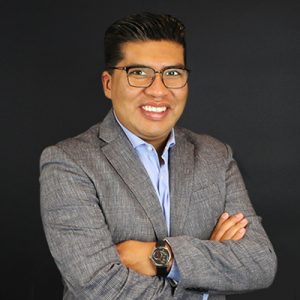
SKILLS
EXPERIENCE
Sistemas aKúbica S.A. de C.V. May 2012 – Today
Actually I ́m leading my own company with 40 consultants some of them with Progress Technologies skills, another more with Microsoft .Net and finally another with IBM BPM skills.
As a leader my commitment is to grow and develop the company in order to be a leader company of innovative technologies in Mexico.
Additionally based on my experience in Progress all my team members are constantly trained in last technologies about Progress, .Net, Java and Web platforms.
Progress Software México From Feb-1999 – May 2012
Since my first day in Progress I had been three roles:
I been participated in different type of projects, some small projects about 10k or big projects about 800k, so I understand the commitment that a team have to have to close different type of projects and to achieve the goals from the consultancy point of view.
Factoria Creativa From 1997 – 1999.
For almost 2 years in this company I was developing Web Applications, principally coding HTML, JavaScript and Perl accessing My SQL Databases.
EXPERIENCE WITH DIFFERENT CUSTOMERS
EDUCATION:
Communications and Electronic Engineering with Systems specialization, Jun 2000 Instituto Politécnico Nacional in México City.
Progress Technologies Training:
IBM Technologies Training:
|
|
|
Work experience
Academic formation
Abilities: Leadership, teamwork, initiative, rationalization, stress control, holistic thinking. Experience:
Achievements:
|
|
|
|
Industrial Engineer with orientation in Project Evaluation from the University of Guadalajara (CUCEI) graduated in 1997; Postgraduate in Manufacturing Systems, Productivity Improvement, Strategic Planning and Innovation in Public Management; with knowledge of Audit and Integration of Quality Systems, International Standard ISO 9001- 2015, 22000 and 45000, Leadership, Decision Making, Consulting in Design and Development of High Impact Intervention Models, National speaker, Instructor of the Chamber of Commerce of Guadalajara and the Secretary of Economy (Mexico Emprende); Federal Register STPS in topics such as Coaching, Entrepreneurship, Quality, High Performance Work Teams, Leadership, 5S s, Lean Tools and Communication. Experience in Business Creation and Development (turnkey), development of High Performance Work Teams, development and implementation of Operative Models and Business Plans, Business Consulting (Contender to the Jalisco Quality Award INJAC), Auditor for Certification in ISO 9001-2008- 15, Improvement of Productivity. Founding partner of the Consulting Firm Personnel Strategic Solutions S.C. |
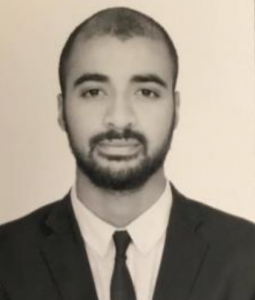
Participation in Congresses
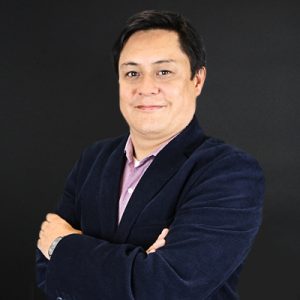
Daniel Roldán is a digital transformation evangelist and disruptive business consultant. He has worked at global software companies as solutions consultant, collaborating closely with major regional companies, banks, carriers, retail and manufacturing. Currently works at Sistemas aKúbica as regional sales manager in charge of state-of-the-art digital business automation solutions including but not limited to Artificial intelligence, Machine learning, Robotic Process Automation, Business Process Manager, Business Rules Manager Systems and Enterprise Content Management. Supporting organizations on disruptive business approach and innovative solutions.
Professional profile
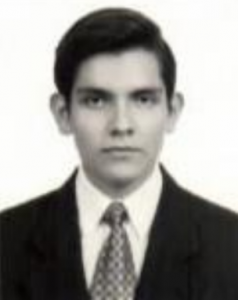
Some of his recognitions in the last years are:
|
Benjamin has 24 years of IT experience. 22 years as Techno-functional Oracle applications experience; working as a consultant, project manager, PM certificated on 2007. 10 years of Management experience. He is IT director in Oracle for ERP financials area. In addition he is a country head for OAL team in Mexico. Benjamin has participated on different roles and he has a very strong technical background, including APEX. Graduated in 2005 as Computer science Engineer from ITQ and studied a Master degree in Computer science on ITESM. |
|
|
|
Miguel Ramón González Castro. He graduated as Computer Science Engineer (UNED) and also as Telecommunications Engineer (Universidade de Vigo), a PhD with Cum Laude in Computer Science, Universidade de Vigo (Spain). He is the IT Industrial Manager at ENCE (Spain). He is the member of the international research group SI1-GEAC (http://si1-geac.webs.uvigo.es/ ). He has published quite extensively and has many publications (including books, book chapters, Scientific Citation Index journal articles, and international journal articles, as well as publications in refereed conference proceedings). |

Elena has 8 years of experience; she has been working for Oracle for almost 8 years. She is now a Principal consultant. She has been working in IT for Financials, including procurement, Payables and taxes. In addition, she has experience working with Supply chain planning. She has a master degree on Computer science from University of Waterloo and a computer science degree from ITESM. She is a very strong developer with extensive experience developing applications with APEX.

Stewart R. Santos Arce (S07-M’09-SM’14) received the degree of Engineer in Communications and Electronics from the Universidad Autónoma de Campeche, in 2007, the title of Master of Science and Doctor of Science, both with Specialty in Electrical Engineering, of the Center for Research and Advanced Studies of the National Polytechnic Institute (CINVESTAV) in 2009 and 2014 respectively.
He is currently a full-time research-professor in the Department of Electronics at the University Center of Exact Sciences and Engineering at the University of Guadalajara. His main research interests focus on parallel neuronal computating for real-time digital signals applied to processing, analysis, segmentation and feature extraction of remote sensing images.In IEEE, he has participated as Student Activities Committee chair (SAC), Young Professionals chair (YP), Communication Society Treasurer (COMSOC), Membership Depelopment and IEEE Guadalajara Section vice-chair. He currently serves as president of IEEE Guadalajara Section, during the period 2017-2018.
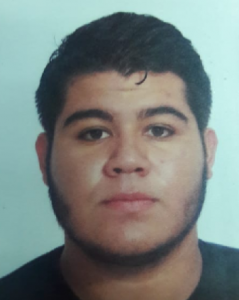
Héctor Escobar is an Information Systems Engineer from the Facultad de Informática de Mazatlán of the Autonomous University of Sinaloa, and has conducted research stays at the Tecnológico Monterrey, Zapopan campus, stays focused on obtaining and using brain waves to control software, this as part of the call for the XXII Summer of Pacific Scientific and Technological Research.

Gloria Piedad Gasca-Hurtado is an associate professor of research at the University of Medellín at the School of Engineering. She has his postgraduate degree in Systems Engineering, is a Systems Audit Specialist;; and his doctorate was held at the Polytechnic University of Madrid, Spain, in the Department of Languages, Computer Systems and Software Engineering of the Faculty of Informatics. Her areas of research include: information and communication technologies (ICT), definition, improvement and optimization of software processes, use of multimode environments, software development in equipment and agile software methodologies applied to small and medium enterprises (SMEs), audit of systems and computer security. among other topics. Her teaching interests are: software engineering, computer project planning, software development methodologies and software process improvement.
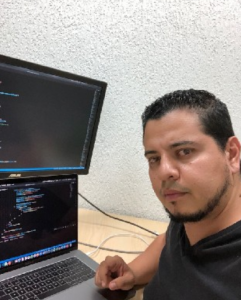
Programmer with more than 8 years of experience in the area, standing out as Technical Leader of several teams throughout his career, most of them in IBM and the position of engineering manager in which 5 teams are in charge of making deliverables about internal IBM applications.
His areas of expertise are:

I’m Rogelio and if I were my professional profile, I would be that Engineering Manager with experience in Embedded Systems, Industrial Automation and Device Drivers. My technical competence goes from Coding, Testing, Requirements, Integration in technologies from sensors, actuators, microcontrollers, 802.15.4 wireless networks, RTOS and Windows, My softskills cover strategy, direction, people management, stakeholder management, knowledge management, democratic debates in coops.
As engineer in my core, I feel all engineers have the responsibility to create solutions that will improve the world in the most trascendant, long range way.
I have interests in the intersection of networking, blockchain technology, machine learning, microeconomics, industrial development and new business models.
Beyond all, I’m a human willing to make the world a better place for my and your offspring.

Álvaro Manuel Reis da Rocha has a degree in Information Technology and Systems, a Doctorate in Engineering and Information Systems Management, a Master’s Degree in Information Management, and a Bachelor’s Degree in Computer Science. He is a professor of Information Systems and Software Engineering at the University of Coimbra and a guest professor at the University of Santiago de Compostela and at the University of Vigo. He is a researcher at the CISUC (Computer and Systems Center of the University of Coimbra) and a collaborating researcher at the LIACC (Artificial Intelligence and Computer Science Laboratory of the University of Porto) and at the CINTESIS (Research Center in Technology Health and Information Systems). He’s president of the AISTI (Iberian Association of Information Systems and Technologies), Moderator of the IEEE Portugal Section of Systems, Man, and Chapter of Cybernetic Society, and Vice President of ADI-PME (Association for Development and Innovation in Small and Medium Business). He’s also Editor-in-Chief of the JISEM (Journal of Information Systems Engineering) and Editor-in-Chief of RISTI (Iberian Journal of Technologies and Information Systems). And he is Vice-Moderator in Horizon 2020 of the European Commission, expert in the Italian Ministry of Education, University and Research, and General Moderator of WorldCIST (World Conference on Information Technology and Systems). He’s also Editor-in-Chief of the JISEM (Journal of Information Systems Engineering) and Editor-in-Chief of RISTI (Iberian Journal of Technologies and Information Systems). And he’s Vice-Moderator in Horizon 2020 of the European Commission, expert in the Italian Ministry of Education, University and Research, and General Moderator of WorldCIST (World Conference on Information Technology and Systems). He’s also Editor-in-Chief of the JISEM (Journal of Information Systems Engineering) and Editor-in-Chief of RISTI (Iberian Journal of Technologies and Information Systems).
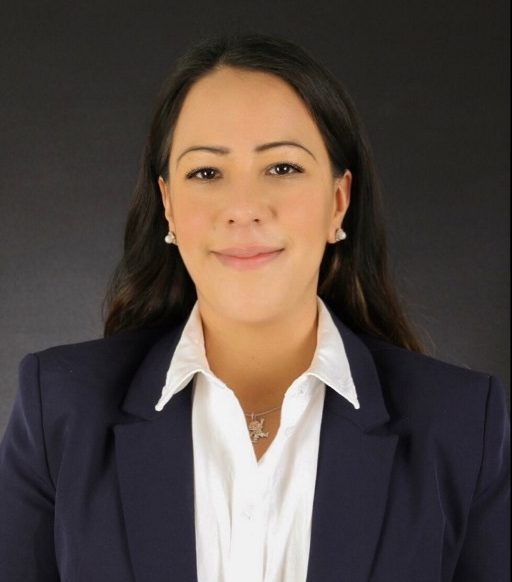
Eloisa Cadenas is a cryptoactive specialist since 2014 and carries out research at the Doctorate level in Financial Engineering at UNAM on cryptoactive financial valuation. She is a consultant and trainer of fintech and cryptoactive companies.
She is a professor at the School of the Mexican Stock Exchange and has taught courses on bitcoin and cryptoactive. She is Coordinator of the Cryptocurrency Committee of the Mexican Academy of Computer Law and a member of the Fintech Commission of the College of Public Accountants of Mexico.
She has participated in several International Financial Research Congresses organized by UNAM, UAM and the Mexican Institute of Finance Executives (IMEF) with the subject of cryptoactive. She has lectured for Google Mexico, BBVA, ANADE, Mexican Internet Association, Bar Association, Binance, Blockchain Summit Latam, Talent Woman and Thomson Reuters. She has also written opinion pieces for Cointelegraph, the College of Accountants, Investing and Crypto News.
In April 2019, she won the “Millennium Talent Awards 2019”, award by Talent Land and Grupo Milenio for the research she carries out on cryptoactives.
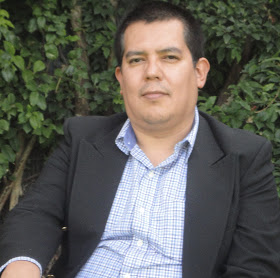
Jaime Muñoz Arteaga is a research professor at the basic sciences center of the Autonomous University of Aguascalientes (UAA), he has a PhD and a postdoc in Computer Science from France. Dr. Muñoz Arteaga is a member of SNI I in Mexico,.His research topics are in the areas of e-learning, human-computer interaction and web engineering. He maintains several networks of collaboration with other research groups in Mexico such as the UV, CENIDET UNAM, and the Université Catholique de Louvain in Belgium. Dr. Muñoz is currently responsible of a PROMEP research team in order to work several topics are working such as open educational resources, user experience and software engineering. The doctor has led several research projects of CONACYT, ALFA III, and SEP. Finally, Dr. Muñoz has published several books one in the area of software engineering, human-computer interaction, and learning object technology.
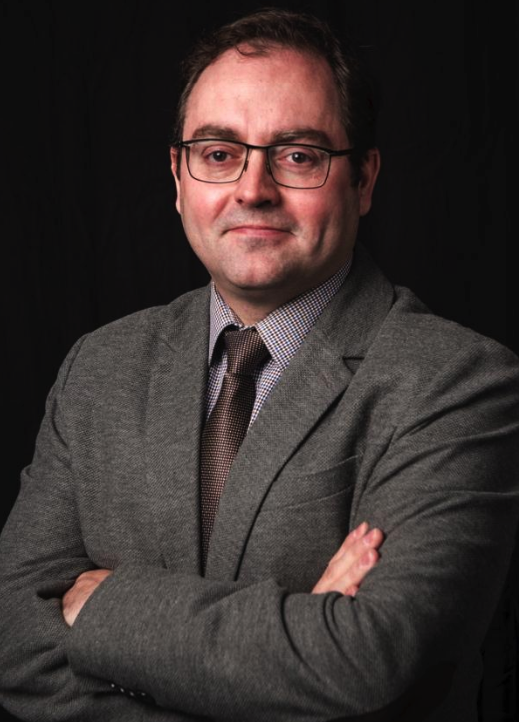
Dr. Felix A. Barrio holds a MSc in Software Engineering and a postgraduate degree in Information Technologies Management from the University of Alcala. He was a Fulbright Fellow in 2003 and since 2014 he is Honorary Associate at Department of Mathematics in the University of Leon. He holds CISM (Certified Information Security Manager) and ISO 9001-14001 Lead Auditor credentials.
Felix Barrio’s earlier professional experiences were linked to the Spanish Ministry of Education, where he had different roles in the area of higher education and technological centres Management. These ran from an initial post as administrator in the area of management in the University of Burgos (1997-1998) through to a position as head of the unit responsible for strategic planning and standardisation management in the University of Salamanca (1998-2003), and as planning director of the General Foundation in the University of Leon (2003- 2007).
Between 2007 and 2014, Felix Barrio’s professional work has been in the Ministry of Industry, and later in the Ministry of digital Agenda. He has held management positions in the areas of software engineering, research and development, innovation and cyber-security, among others in the Spanish National Communications Technologies Institute. Between 2014 and 2018 he has been Head Manager of Industry and R&D&i of INCIBE, the Spanish National Cybersecurity Institute.
This background has been rounded out by his active participation in academic and professional forums in the ICT world with a focus at the cyber-security sector. Until now he has combined his position as a member of the Board of Directors of the European Cyber Security Organization (ECSO), the Public-Private Partnership Consortium sponsored by the European Commission, with the presidency of the Subcommittee on Cybersecurity Technologies-UNE, from where he has coordinated in 2014 the translation into Spanish of the family of ISO 27000 standards of Security Technologies and in 2019 the revision of the new ISO 27000 standards.
He has also taught various postgraduate seminars at several Universities and is a collaborating professor of several masters in the areas of IT Governance and Information Security Management Systems including the position of Director at the Master of Cybersecurity at the University Isabel I of Castile. Advisor to the OAS and the EU for different international cooperation programs in this area, he is currently collaborating with the TEC de Monterrey for the launch of the International Cybersecurity Hub.
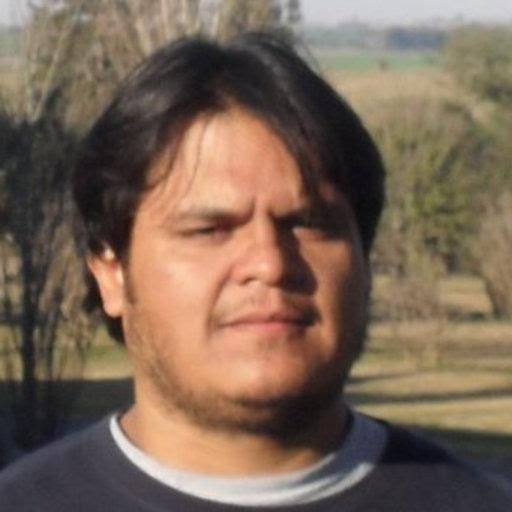
Dr. Hector Cardona received his Bachelor’s degree and Master’s degree in Computer Science from the Autonomous University of Aguascalientes.
He obtained his PhD in Computer Science at the Juárez Autonomous University of Tabasco. He has experience in mobile applications, web engineering, video game design and virtual reality. Since 2019 he is a CONACYT Professor commissioned to the Center for Research in Mathematics, Zacatecas. Also, he is a member of the National System of Researchers of CONACYT at level 1.
Research areas:
Human Computer-Interaction, Software Engineering, Interactive Environments and Virtual Reality applied to health and education.
|
|
|
José Eder Guzmán Mendoza has a PhD in Computer Science. Dr. Eder Guzmán is a full-time professor at the Polytechnic University of Aguascalientes, where he is the leader of the Information Technology and Telecommunications academic group (CATIT), as well as a candidate for the National Research System (N.R.S.). Dr. Eder Guzman’s research lines are Human-Computer Interaction and Software Engineering applied to improve the education. Within his scientific and technological activities, he has participated in national and international projects focused on decreasing the digital divide in various learning communities, he has also generated collaborative models for the production of educational software, as well as the development of services ecosystems focused on improving the teaching-learning processes. |
|
|
|
|
|
|
Rodolfo Ferro studied mathematics with a concentration area in computing, at the University of Guanajuato and CIMAT; he works as the Community Lead in Codeando México and as an ML Engineer applied to industry, with experience in web services, automation, bots and more. A Guanajuato State Youth Award 2018, he has served as a CONACYT Research Assistant for CIMAT and has been a Summer Intern at the Aspuru-Guzik Research Group, at Harvard. Currently a Google Developer Expert in Machine Learning, he is certified by IBM in quantum computing and is a winner of the TensorFlow 2.0 World Challenge. |
|
|
|
Master of Science specialized in the processing of human behavior through artificial intelligence and deep learning models. Knowledgeable in: programming languages (Python, Java, C ++ and C #), software engineering, system dynamics, mechatronic systems, and information processing techniques. Education:
|
|
|
|
Carlos Artemio Coello Coello was born in Tonalá, Chiapas, on October 18, 1967. He studied civil engineering at the Autonomous University of Chiapas, graduating with honorable mention. That same year, he received the “Diario de México Medal” for being one of the “best students in Mexico”. Later, he obtained a scholarship from the Ministry of Public Education to pursue master’s and doctorate studies in computer science at Tulane University, in the United States, graduating in 1993 and 1996, respectively. Since 2001, he works at the Center for Research and Advanced Studies of the National Polytechnic Institute Ph.D. Coello has pioneered an area of computing known today as “multi-objective evolutionary optimization”, which focuses on solving problems with two or more objective functions (usually in conflict with each other) using biologically inspired algorithms. . His work has mainly revolved around the design of algorithms, several of which have been used to solve real-world problems in countries such as the United States, Colombia, Chile, and Cuba. Ph.D. Coello has more than 480 publications, which to date report more than 51,300 citations in Google Scholar (its h-index is 90). He has directed 74 theses to date (including 21 doctorates), several of which have received awards. He is also associate editor of 8 international journals, including the 2 most important in his area, and belongs to the editorial committee of 4 more magazines. Ph.D. Coello is the youngest computer scientist to have reached level 3 of the National System of Researchers (SNI) in area VII (at 37 years of age), and since 2010, he is a Cinvestav 3F Researcher (the highest possible category in CINVESTAV -IPN). There are only 31 researchers (out of 645 that CINVESTAV-IPN has) who hold this category. Ph.D. Coello received the 2007 National Research Award in “exact sciences” from the Mexican Academy of Sciences, being, to date, the only computer scientist who has received this important distinction since it was instituted in 1961. He also received the Medal of Scientific Merit 2009 from the Legislative Assembly of the Federal District. In addition, he has been awarded the Capital City Award: Heberto Castillo Martínez – 2011 Edition, in Basic Sciences, in the category of Mexican scientists aged 45 years or less. Since January 2011, he is an IEEE Fellow for his contributions to single-objective and multi-objective optimization using metaheuristics. Ph.D. Coello received the 2013 IEEE Kiyo Tomiyasu Award for “pioneering contributions to single- and multi-objective optimization using bio-inspired metaheuristics,” making him the first Latin American to receive this important award. He also received the 2012 Scopus México Award, in the Engineering area, for his high number of publications and citations in the last 5 years, becoming the first computer scientist to receive this distinction, since it was instituted in Mexico in 2007 The then president Felipe Calderón Hinojosa also received the 2012 National Prize for Sciences and Arts, in the area of Physical-Mathematical and Natural Sciences. This is the highest award given by our government to a scientist and the Ph.D. Coello was only the second computologist to receive it in the 67-year history of the award, and he was also the first to obtain it in exact sciences. In December 2012 he received the National Prize for Socio-Humanistic, Scientific and Technological Research 2012 from the Autonomous University of San Luis Potosí. He also received the 2016 The World Academy of Sciences (TWAS) Award in “Engineering Sciences” for “his pioneering contributions to the development of new algorithms based on bio-inspired metaheuristics to solve single-objective and multi-objective optimization problems.” Luis Elizondo 2019 in the Scientific and Technological Category. |
|
|
|
Ph.D. Hanna Oktaba, in 1982 obtained a doctorate from the University of Warsaw, Poland. Since 1983 and to date, she is a professor at the National Autonomous University of Mexico at the undergraduate and graduate levels. Her main areas of interest are Software Engineering, Object Oriented Technology, Software Process Models and Process Improvement. She was the founder of the Mexican Association for Quality in Software Engineering (AMCIS) and the Mexican Society for Computer Science SMCC). From 2002 she was in charge of the MoProSoft, EvalProSoft and Controlled Tests projects supported by the PROSOFT program of the Ministry of Economy. As a result of these projects, in October 2005, the Mexican standard for the software industry based on MoProSoft and EvalProSoft was approved. Between 2004-2006 she was a member of the International Process Research Group (IPRC) organized by the Software Engineering Institute (SEI), whose objective was to define the lines of research in the process area for the next 10 years. From 2006 to 2008 she was Technical Director of the COMPETISOFT project. The objective of this project, financed by CYTED, was the improvement of processes to promote the competitiveness of the small and medium software industry in Latin America. The project was directed by Dr. Mario Piattini from the Castilla-La Mancha University, Spain, and had the participation of 23 groups from 13 countries. Since 2006, she has been the representative of Mexico before the Work Group 24 of ISO JTC / SC7 Software and System Engeeniring whose objective is to generate an international standard ISO / IEC 29110 for Very Small Entities of the software industry based on the Mexican standard. In 2011, the first five parts of this standard were published, including part 5-1-2 of the Basic Profile. She is a member of the Editorial Board and columnist for Software Guru magazine aimed at professionals in the Mexican software industry. My greatest pride is my former graduate and undergraduate students who occupy important positions in professional spaces in the software industry and in academia. |
|
|
|
Antoni-Lluís Mesquida is an assistant lecturer with a doctoral degree and researcher at the University of the Balearic Islands (UIB), Spain. He received his PhD in Computer Science from the University of the Balearic Islands. He is a member of the “Software Project Improvement and Innovation” research group. His research interests include Software Process Improvement, Project Management, Lean & Agile, and IT Service Management. He has participated in different research projects, such as QuaSAR, a software process improvement programme in small software companies in the Balearic Islands. He has supervised several PhDs. He is the author of more than fifty papers on Software Process Improvement and Project Management. He coordinates different Project Management postgraduate courses at the UIB. He has served as program committee member and chair of scientific conferences related to software quality. |
|
|
|
Ricardo Colomo-Palacios, Full Professor at the Computer Science Department of the Østfold University College, Norway. Formerly he worked at Universidad Carlos III de Madrid, Spain as Associate Professor. His research interests include applied research in information systems development, software project management, people in software projects and software and services process improvement, naming a few of his recent developments. He received his PhD in Computer Science from the Universidad Politécnica of Madrid (2005). He also holds a MBA from the Instituto de Empresa (2002). He has been working as Software Engineer, Project Manager and Software Engineering Consultant in several companies including Spanish IT leader INDRA. He is also an Editorial Board Member and Associate Editor for several international journals including IEEE Software and IEEE Access as well as conferences. He has been involved in different Regional, National and European competitive projects. Together with his team he has published in journals like Information and Software Technology, IEEE Software, Software Quality Journal, Future Generation Computer Systems or Information Sciences. He is IEEE Senior Member. |
|
|
|
Professional Experience Executive Director Biomedical Engineering Jalico’s March 2018 – To the date Biomedical Engineering Jalisco’s Cluster Executive Director, promoting the industrial growth and companies development in the biomedical devices ecosystem. Independent consultor Project Management and Fund Management January 2015 – To the date Consultant for companies and institutions in the development, execution and closing stages of innovation and technological projects. Diffusion and promotion of science and technology. Support in the management of public and private funds. Innovation Projects Coordinator Jalisco Information Technology Institute April 2013 – March 2018 Project Management, Innovation initiatives coordination of the Jalisco IT Cluster. Health innovation projects development, energy and agro-industry. Coordinator of the Community of Biomedical Engineering in Jalisco Lambda Ápeiron (Biomedical Engineering Community) December 2014 – December 2017 Founder and Coordinator of the Lambda Ápeiron Biomedical Engineering Community, promoting entrepreneurship, innovation and the development of healthcare technology projects. Member of the National Innovation Committee Mexican Society of Biomedical Engineering August 2015 – August 2017 Coordination and collaboration with national initiatives to promote innovation in biomedical engineering for industry, academia and government |
|
|
Jesús David Arredondo Salas, graduated in Information Systems Engineering, currently works for a software development company as a programmer analyst. |
|
|
|
He entered the Armed Forces on September 1, 1978, at the Heroic Military College. EDUCATION His academic preparation is as follows: training as a combat engineer officer at the Heroico Colegio Militar, he has a Bachelor’s Degree in Military Administration, Diploma in General Staff, specializations in tactical-administrative and Superior Warfare; Master’s in Military Administration for National Security and Defense graduated by Acclamation and the Magna Cum Laude Doctorate in Organization Management, graduated with honorable mention, he is currently a Doctorate in Business Administration. Abroad, he completed the Master’s Degree in National Defense and studies of National Strategic Intelligence in the Republic of Argentina; in the United States of America, the studies of Combat Staff and Administration of Defense Resources and in the Institute for the training of Peace Operations, the courses of United Nations Peace Operations Command and Operation of Mines . He has participated in various academic teaching courses, DISTINGUISHED He has received 7 military decorations of perseverance, in addition to the decoration of teaching merit, technical merit, of the Legion of Honor, 1 / o medal. of August of the People’s Republic of China and multiple decorations and civilian awards. Finally he is distinguished with 5 honorary doctorates awarded by various educational institutions. Author of articles and books related to education, leadership and Homeland Security; as well as intelligence models. ADMINISTRATIVE AND OPERATIONAL POSITIONS He has served as a professor at the Heroic Military College, at the Higher School of War, academic coordinator of the international situation at the National Defense College, Director of the Military School for the Application of Weapons and Services and Director of the National Defense College. . During his military career he has held multiple administrative and operational positions, among which stand out, Commander of the 3rd. Construction Battalion, Commander of the 3 / a. Special Forces Brigade, Commander of the 6th. Military Police Brigade, Commander of the 24 / a. Military area; Likewise, he has qualified in the Special Corps as: Paratrooper; Special Forces and Military Police, participating in military activities, in support of the civilian population and its authorities. He has served in diplomatic activities in Argentina, Canada, China, the United States of America, Guatemala and the Dominican Republic. |
